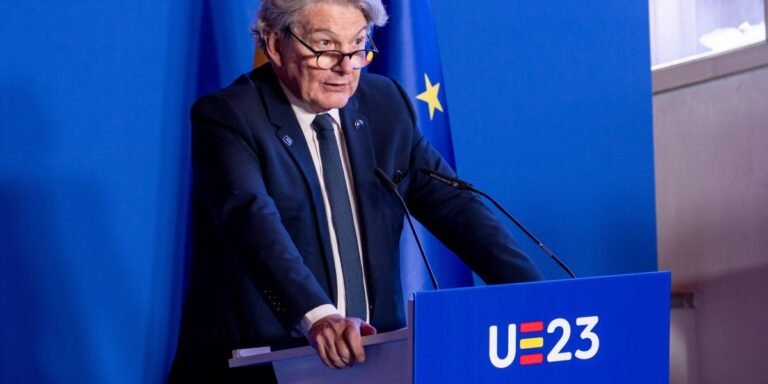
The European Union has reached a hard-won settlement on what would turn into probably the most complete regulation of synthetic intelligence within the Western world.
Thierry Breton, head of the European Union’s inside market, mentioned the deal strikes a stability between selling innovation and defending the rights of individuals and corporations.
“We now have spent loads of time discovering the appropriate stability between benefiting from the potential of AI to help regulation enforcement whereas defending the elemental rights of our residents,” he mentioned in an announcement early Saturday. “We do not need any mass surveillance in Europe.”
After greater than 33 hours of negotiations this week, delegates from the European Fee, the European Parliament and 27 member states agreed on a set of controls for generative AI instruments akin to OpenAI Inc’s ChatGPT and Google’s Bard, the sort able to producing on-demand content material.
Britton mentioned negotiators agreed to permit direct face scanning, however with ensures and exceptions. The deal would additionally ban biometric scanning that classifies folks by delicate traits, akin to political or non secular beliefs, sexual orientation or race.
The draft regulation nonetheless wants formal approval from EU member states and Parliament. However the deal represents an important step towards a landmark AI coverage that may — within the absence of any significant motion by the U.S. Congress — set the tone for regulating the quickly evolving expertise. The European Union goals to place in place the primary strict guardrails for synthetic intelligence exterior Asia.
Policymakers have been working for months to finalize and move an AI regulation earlier than European elections in June, which can result in the formation of a brand new fee and parliament, which might power additional adjustments and derail efforts.
The choice was reached in Friday’s session after a marathon that lasted about 24 hours, extending from Wednesday to Thursday. In the course of the first assembly, some negotiators fell asleep within the room whereas others mentioned the extra delicate matter of proscribing direct facial scanning expertise in public locations earlier than lastly agreeing to separate.
The tough debates underscore simply how contentious the controversy over AI regulation has turn into, dividing world leaders and expertise executives alike as generative instruments proceed to develop in reputation. The EU – like different governments together with the US and the UK – has struggled to discover a stability between the necessity to shield its personal AI startups, akin to French AI firm Mistral and German firm Alpha, in opposition to potential societal dangers.
This proved to be a significant sticking level within the negotiations, with some nations, together with France and Germany, opposing guidelines that they mentioned would unnecessarily hinder native companies.
Civil servants will proceed to work out quite a lot of particulars within the coming weeks, however negotiators have largely agreed to set guidelines round generative AI, which embrace fundamental transparency necessities for any developer of a giant language mannequin. Those that pose systemic dangers must signal a voluntary code of conduct to work with the committee to mitigate the dangers. The plan is much like the European Union’s content material moderation guidelines and the Digital Companies Act.
Essentially the most tough level is how restrictive dwell biometric identification instruments are. Parliament voted in favor of a whole ban final spring, nonetheless, EU nations have pushed for nationwide safety and regulation enforcement exceptions. Lastly, the 2 sides agreed to restrict the usage of expertise in public locations with extra protecting limitations.

